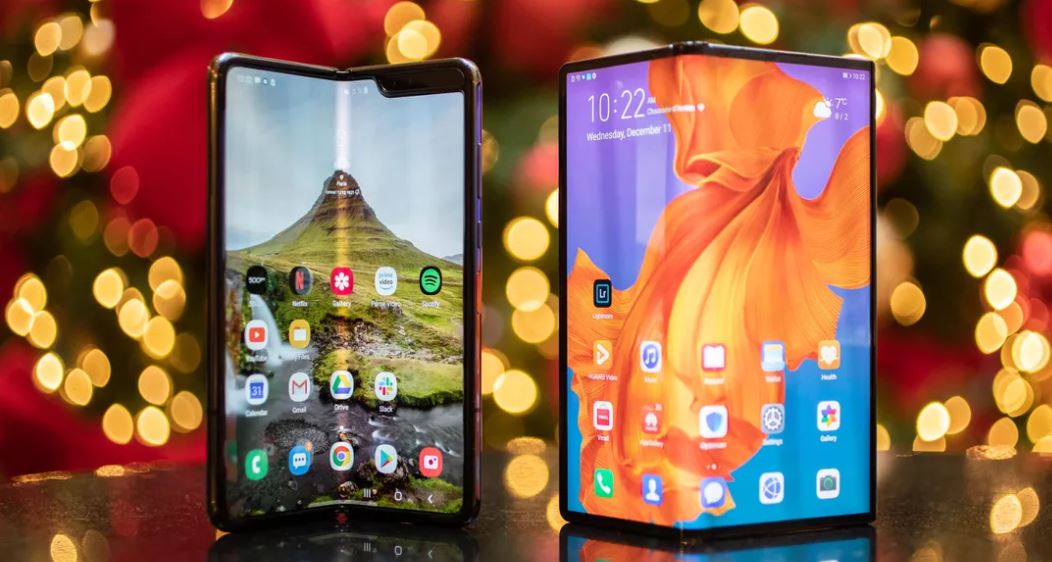
Ren Zhengfei, a former Chinese People's Liberation Army officer, founded Huawei (pronounced Wah-Way) in 1987. Since then, the Shenzhen-based Chinese company has become the world's largest smartphone maker alongside Apple and Samsung. The company also manufactures consumer electronics and builds communications equipment and infrastructure. She became a multinational giant with $ 121 billion in revenue in 2019.
Despite impressive growth, Huawei remains a privately held company wholly owned by its own employees. This means that the company is not traded on any public market and no one but employees can invest in it. Despite the impossibility of investment, interest in one of the giants - smartphone manufacturers continues to grow.
Where does Huawei do business?
In addition to the production of smartphones, Huawei builds telecommunications networks and provides accompanying services. As of 2019, the company employed over 190,000 people in over 170 countries. Most of the business is located in China, the rest is in Europe, the Middle East, Africa and the Asia-Pacific region.
Key factors
Huawei is a multinational consumer electronics and communications equipment company.
Despite impressive growth, the company is 100% employee-owned.
Huawei is the subject of much controversy as US officials suspect that the Chinese government is actively involved in the company's business processes.
With the exception of America, Huawei continues to see strong sales growth worldwide.
There is no indication that the company is planning a public offering or listing.
Where does Huawei do business and where does it not?
Global skepticism towards Huawei has grown in recent years when the 2012 U.S. Congress delivered a speech highlighting the safety risks of using Huawei's equipment. While Huawei claims to be 100% employee-owned, U.S. officials are skeptical that the Chinese government and the Communist Party can influence it. A 2019 law in China obliging Chinese companies to assist national intelligence networks has heightened these concerns.
US sanctions against Huawei
14 months ago, the United States imposed sanctions on Huawei, according to which the company is no longer allowed to use American technology. These sanctions were a decisive factor for the UK in announcing a ban on the products of the Chinese manufacturer. “The UK can no longer be confident that it can guarantee the security of future Huawei 5G equipment affected by the change in US foreign direct product rules,” Oliver Dowden, the country's digital minister, expressed his concern.
In January 2018, major US mobile companies AT&T and Verizon stopped using Huawei products on their networks. In August, Australia decided not to use the company's products as it is building its 5G networks for the entire country. In November, New Zealand banned Spark, one of the country's largest telecommunications companies, from using Huawei products on its 5G network. Despite the decisions of the governments of these countries, Huawei can do business with private companies in each of them.
On December 1, 2018, at the request of the US government, Canadian officials arrested Meng Wanzhou, Huawei's chief financial officer and daughter of the company's founder. On January 29, 2019, the US government filed a formal request for her extradition, claiming that she violated US sanctions against Iran. The US also banned Huawei from doing business with US state companies due to sanctions violations.
In June 2019, President Trump lifted restrictions on Huawei as part of ongoing U.S.-China trade negotiations. However, Huawei has announced plans to cut 600 jobs in Santa Clara, California, and has decided to move the center to Canada by December 2019.
How does Huawei make money?
Huawei operates in the carrier, enterprise and consumer segments. Since the company is not public, it is not listed on any stock market and is not required to file filings with the Securities Commission (SEC). However, she still reports her earnings regularly.
In its 2018 annual report, the company reported total revenue of $ 108.5 billion, up 19.5% from a year earlier. Profits jumped 25%. The company said it sold over 200 million smartphones in 2018, an impressive increase from 3 million sold in 2010.
Huawei said business in China - grew by 19% in 2018, in the Asia-Pacific region - grew by 15%, in EMEA (Europe, Middle East and Africa) - it grew by 24.2%, and in the North and South America - fell 7% and shows a decline for the second year in a row.
Why not invest in Huawei?
Huawei is privately owned by Chinese employees. Anyone who works for a company outside of China cannot buy its shares. The shareholders of the company admit that they do not fully understand the structure of the company, do not receive updated information on their holdings and do not have the right to vote. Thirty-three union members select nine candidates to attend the AGM. Shareholders receive dividends and have the potential to earn performance-based bonuses. Their salaries are also reviewed on an annual basis.
In 2014, Huawei's senior management was asked if it would consider listing on the stock market, and the answer was no. But with the circumstances surrounding the company, the likelihood of Huawei entering the public market exists, especially if the company needs additional capital. It is unlikely that Huawei will enter the US market due to bad relationships and the growing reputation of the spy company.
As for the investment in Huawei, which is called "here and now" - there is only one potential solution, but it is allegorical. To receive dividends, you need to become an employee of a company in Shenzhen, China, and make the management believe that you are not a spy.
Good luck!